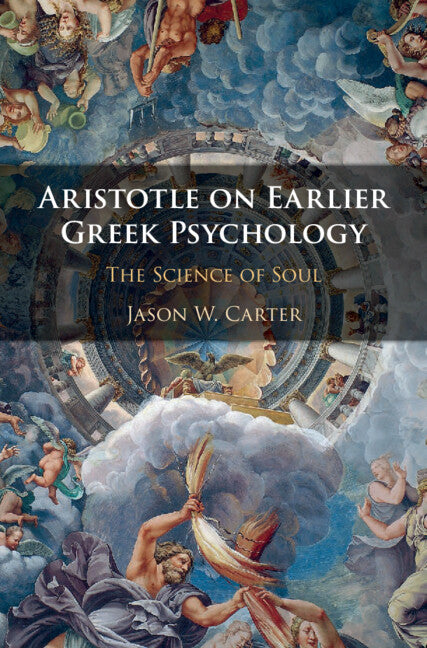Freshly Printed - allow 8 days lead
Couldn't load pickup availability
Aristotle on Earlier Greek Psychology
The Science of Soul
Argues that Aristotle's psychology is shaped by his critical reception of earlier theories of soul, including the Presocratic and Platonic.
Jason W. Carter (Author)
9781108481076, Cambridge University Press
Hardback, published 21 March 2019
266 pages
23.5 x 15.7 x 1.8 cm, 0.51 kg
This volume is the first in English to provide a full, systematic investigation into Aristotle's criticisms of earlier Greek theories of the soul from the perspective of his theory of scientific explanation. Some interpreters of the De Anima have seen Aristotle's criticisms of Presocratic, Platonic, and other views about the soul as unfair or dialectical, but Jason W. Carter argues that Aristotle's criticisms are in fact a justified attempt to test the adequacy of earlier theories in terms of the theory of scientific knowledge he advances in the Posterior Analytics. Carter proposes a new interpretation of Aristotle's confrontations with earlier psychology, showing how his reception of other Greek philosophers shaped his own hylomorphic psychology and led him to adopt a novel dualist theory of the soul–body relation. His book will be important for students and scholars of Aristotle, ancient Greek psychology, and the history of the mind–body problem.
Introduction to hylomorphic psychology
Part I. Aristotle's Methodology of Psychological Inquiry: 1. Definition, explanation and psychological inquiry
2. Definition, explanation and the soul-body relation
Part II. Earlier Theories of Psychological Motion: 3. Plato's psychology
4. Democritus' psychology
5. Xenocrates' psychology
6. Harmonic psychology
Part III. Earlier Theories of Psychological Cognition: 7. Empedocles' psychology
8. Anaxagoras' psychology
Part IV. Earlier Theories and Two Psychological Puzzles: 9. The puzzle of the soul's uniformity
10. The puzzle of the soul's divisibility
Conclusion: hylomorphic psychology as a dualism.
Subject Areas: Western philosophy: Ancient, to c 500 [HPCA]


